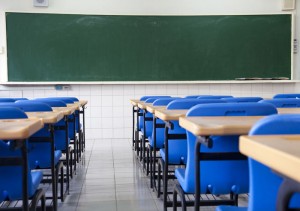On the Hill: Voucher Bills Threaten Integrity of Public Schools
 Image credit: tomwang / 123RF Stock Photo
Image credit: tomwang / 123RF Stock Photo On February 26th the American Humanist Association issued an action alert urging its members to oppose a new voucher bill, the Scholarship for Kids Act, which would damage the public school system while funding religious education at private religious schools. This bill, which is in both the House and the Senate, is now being supplemented by another voucher bill in the Senate, S. 1909, which would also have a dreadful impact on the public school system while threatening the separation between church and state.
According to the National Coalition for Public Education, of which the AHA is a member, the Scholarship for Kids Act would take $24 billion in taxpayer money and funnel it to private schools. That means that nearly 63% of the federal dollars now being spent on K-12 education programs would be converted into private school vouchers under this bill, a staggeringly large amount that would likely cripple our public education system. S. 1909 does much of the same thing, although on a smaller scale, funneling about $11 billion dollars of federal taxpayer money to private schools.
Regardless of how people personally feel about the public education versus private education debate, nearly everyone can agree that the federal government shouldn’t fund private religious education at private religious schools. Parents who want to send their children to such institutions are free to do so, but the American taxpayer shouldn’t have to foot the bill for such an explicitly religious activity.
Another concerning aspect of these bills is the discrimination that they would allow to take place even though they had received funding from the federal government, and therefore from taxpayers of all different beliefs, genders, races, economic status and backgrounds. Both of these bills explicitly state that these private schools can reject students based on economic status, academic achievement, disability and even gender. Furthermore, prospective teachers can be discriminated against solely because of their religious beliefs or lack thereof.
Public schools, for all of their problems, at least are required by law to be non-discriminatory, both towards teachers and students. This only makes sense, since taxpayers of all possible backgrounds and appearances are footing the bill, and as such shouldn’t experience discrimination by the very programs they are paying for. Under these two bills, these very same taxpayers will be supporting an educational system that has the legal right to arbitrarily discriminate against young students and dedicated teachers.
Congress has a responsibility to support educational structures that accept all students and qualified teachers regardless of what they look like or what they believe, and failing to do so by supporting voucher legislation would seriously jeopardize not only our public education system but many of the foundational philosophical principles that our country is based on. Our public education system certainly has its fair share of problems, but the solution isn’t to take away already limited resources from that system in favor of funding religious instruction and discriminatory private schools.
Thankfully, these bills are unlikely to become law because of staunch opposition in the Senate and the White House, but the increasing popularity of voucher programs with our national legislators is concerning and requires professional activists and dedicated students, parents, and teachers to stand up and voice our opposition to such discriminatory programs.
